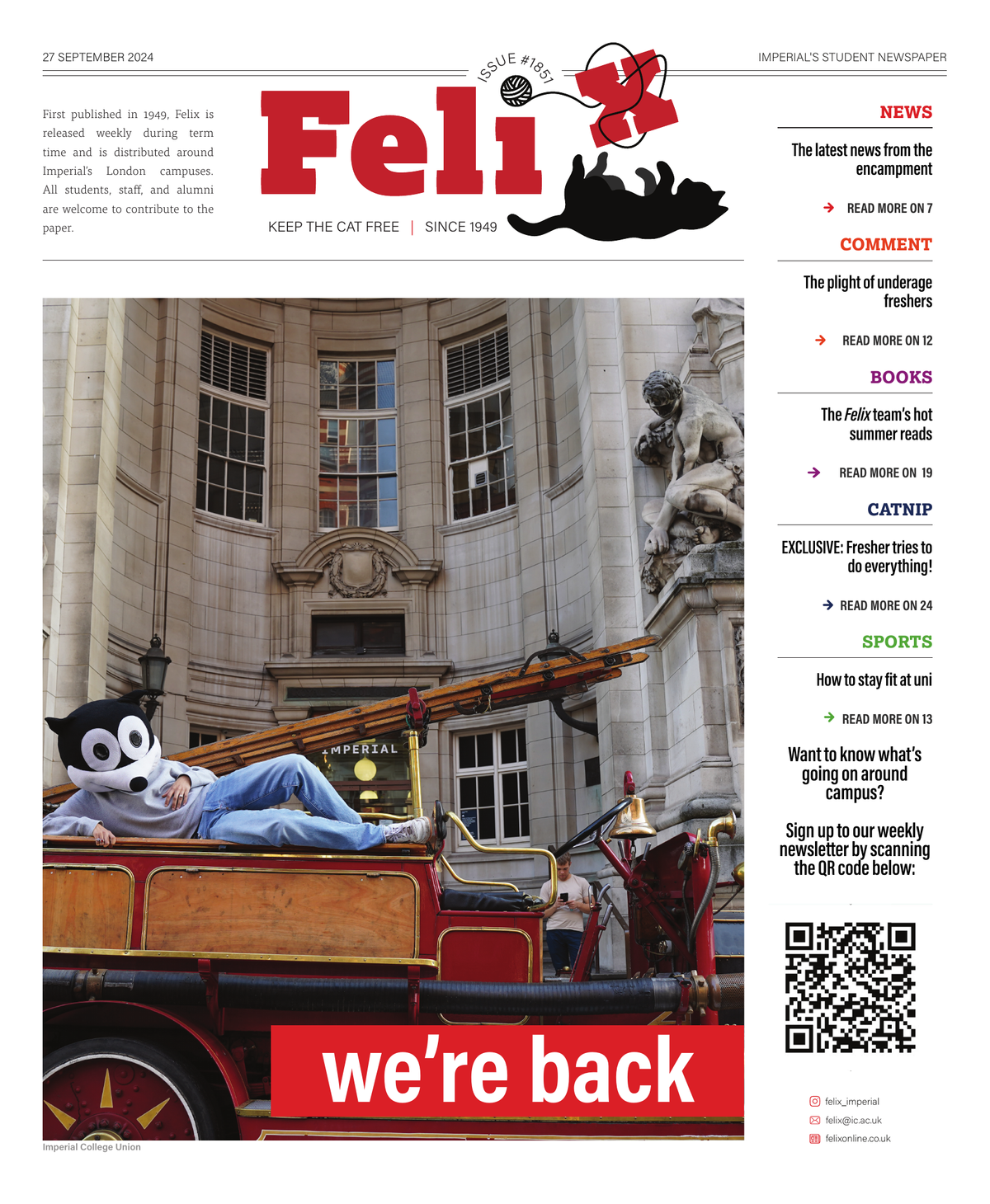Imperial's sustainability policy is already making its mark
In 2022/23 Imperial emitted 240,000 tonnes of carbon dioxide equivalent (tCO2e). Focusing just on Imperial’s direct emissions and emissions from purchased energy – scopes 1 and 2 respectively – it is not only among the top five highest emitting UK universities but also has the highest emissions of any UK university per full time equivalent staff and students.
It's no huge surprise then that Imperial scored a total of 40.4% in the People & Planet University League 2023/24, scraping a 2:2. Yet less than a year later, the QS World University Rankings 2025 were released, with Imperial scoring 99.7 on Sustainability, putting it 6th in the world and well above the University of Reading, which came first in the People & Planet league and is known for its courses in climate and sustainability. In fact, Imperial's score in the QS Sustainability Rankings jumped from 75.1 in 2023 to 97.0 in 2024.
Imperial's main sources of emissions are fossil gas (15%), purchased electricity (6%), procurement and supply chain (38%); fuel and energy (3%), business travel (11%), and student travel (24%). Other sources were either not reported or were less than 1% of emissions.
Imperial's recent net-zero strategy for estates is a major step forward. The plan commits £920 million to £1.52 billion to improvements to bring Imperial to net-zero operational emissions by 2040. One major saving will come from switching from combined heat and power (CHP), which is responsible for the vast majority of scope 1 emissions, to heat pumps, and this benefit will only improve as the grid decarbonises. The strategy details, building-by-building, the fabric improvements required to make this possible.
Imperial's new Sustainable travel policy has a lot of ground to cover to mitigate Imperial's emissions from travel and commuting. Nearly all of these emissions are indirect emissions – scope 3 – and so don't come under Imperial's net zero commitment; instead, Imperial has committed to "minimise Scope 3 emissions as far as possible." The policy focuses primarily on business travel and requires travel by rail instead of air for journeys under five hours.
Catering is another visible aspect of Imperial's sustainability work. Imperial's most recent Sustainability in Catering Update, published in June, highlights their 86% reduction in beef, one of the highest emitting foods, of which 26% has been replaced with venison and they are ahead of schedule on their target to phase out beef completely by 2025/26. Last year, Taste Imperial trialled Plantworks, a plant-based catering outlet. This year, the brand has been expanded with plant-based meals spread around other outlets and indicated with a sticker. Catering was one of the first and fastest movers on sustainability at Imperial and they have been making other small changes which have largely gone unnoticed by students and faculty.
One aspect of Imperial's low People & Planet score is its policy on divestment. 68% of UK universities have committed to divest from fossil fuels, according to People & Planet's Fossil Free campaign, whereas Imperial has a partial commitment to divestment which we can expect more clarity on later this academic year.
We're yet to see the real impacts of these new policies on emissions, but with all these new projects kicking in, this is sure to be an exciting year for Sustainability at Imperial.








